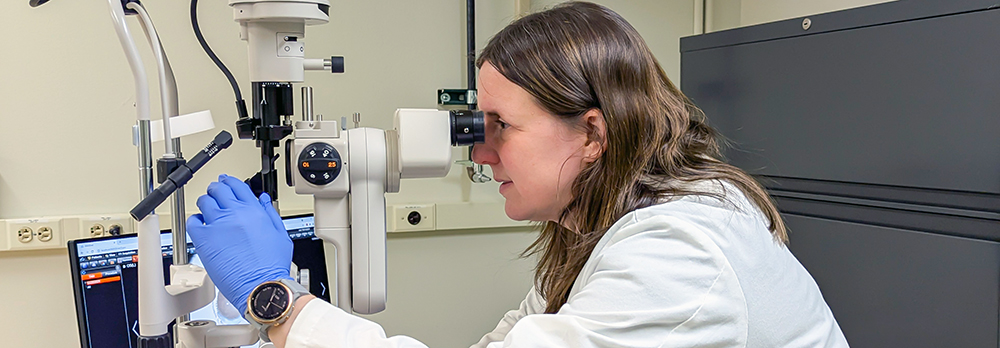
Most people have heard of glaucoma, a blinding eye disease that affects more than 3 million people in the United States. As the second leading cause of blindness worldwide, approximately 12% of individuals suffering from the disease eventually lose their vision.
Many people would be shocked to hear, however, that the same virus that causes cold sores can also lead to blindness. Recurrence of the Herpes Simplex Virus type 1 (HSV-1) is the leading infectious cause of blindness worldwide. According to the Centers for Disease Control and Prevention, approximately 1.8 million people in the United States suffer from ocular herpes each year. That’s a staggering number for a condition most people associate with a lip sore.
At the University of Wisconsin–Madison, vision researchers Colleen McDowell, PhD and Donna Neumann, PhD are digging into a critical question: are these two different and significant ocular diseases simultaneously promoting ocular damage? With a $427,000 two-year exploratory grant from the National Institutes of Health, they’re working to find the answer.

“HSV-1 is a life-long human pathogen that infects approximately 70% of the world population by adulthood,” explained Dr, Neuman, an associate professor in the Department of Ophthalmology and Visual Sciences. “While HSV-1 is silent in neurons most of the time, it can reactivate in response to stressors like UV exposure, emotional or physical stress, or extreme temperatures, causing disease recurrence in the eye.”
If left untreated, repeated flare-ups of HSV-1 can increase intraocular pressure (IOP) — the pressure inside the eye. This inflammation and high pressure can damage the optic nerve, which carries visual signals from the eye to the brain.
This is the same thing that happens for many people diagnosed with glaucoma.

“What’s clear is that both glaucoma and HSV-1 are associated with increased ocular inflammation and elevated intraocular pressure,” said Dr. McDowell, also an associate professor in the Department of Ophthalmology and Visual Sciences and the study’s principal investigator. “But what we don’t know is whether these two prominent ocular diseases together pose increased risk of ocular damage. The concept remains underexplored.”
HSV-1 and glaucoma are typically managed with medications that either reduce inflammation and/or lower eye pressure. These treatments work well for most patients, but not all. That’s where the new research comes in.
“There are patients who don’t respond to current therapies,” said Dr. McDowell. “It is our goal to help uncover new treatments that can effectively control intraocular pressure and design therapies that stop it before it harms vision.”